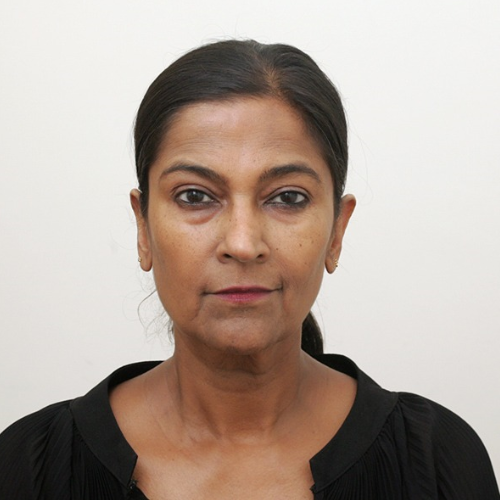Dr Ramya Subrahmanian is Chief, Research on Gender, Rights and Protection at the UNICEF Innocenti – Global Office of Research and Foresight, Florence, Italy. She leads a team of researchers working on issues such as violence against children and women, migration and displacement, child labour, harmful practices such as child marriage and Female Genital Mutilation, amongst others. In a career spanning over 30 years, Ramya has worked in many countries and different organisations. Previously, she was the Executive Director of Know Violence in Childhood, an independent global learning initiative focused on violence prevention. Prior to that, she worked at UNICEF India as a social policy specialist where she established a national programme of research and policy analysis in the areas of child-sensitive social protection, public finance, equity and social inclusion, and gender equality. She has been a research fellow at the Institute of Development Studies, University of Sussex, where she co-directed and taught the MA Programme in Gender and Development. Ramya has a PhD in Development Studies and a MA in Gender and Development.
Abstract
Abstract Title
Prévenir la violence dans les écoles : un aperçu sur l’état des preuves empiriques
Violence experienced in childhood is a multi-dimensional, multi-sited phenomenon. Children experience multiple forms of violence in homes, schools, communities at great cost to their physical, mental and emotional health and development. Schools are both a place of safety for children, where they can learn practices of non-violence and non-discriminaton and develop positive capabilities, and also a place where wider social dynamics of inequality and conflict are played out through the exercise of violence. Strengthening schools’ capacities to reinforce the former, and prevent or address the latter is a key component of more effective child protection and central to the fulfillment of child rights. Over recent years, there have been several initiatives to test interventions to address violence against children in schools, whether aimed at teachers, or at addressing peer violence. While the evidence base is still growing, there are many lessons that can be learned from studies of programmes that have had a positive impact on school environments, reducing violence such as bullying, the use of harsh discipline, and promoting safe use of digital technologies. These point both to the possibility of making schools safe learning spaces for children, and to the potential of ending violence in schools.

